

EXPLORE BY TOPIC:
  Our top 10 resources
Our top 10 resources
  Childhood / Early Life
Childhood / Early Life
  Chronic Stress
Chronic Stress
  Education
Education
  Food Security
Food Security
  Genetics
Genetics
  Jobs & Work
Jobs & Work
  Housing / Neighborhoods
Housing / Neighborhoods
  Income & Wealth
Income & Wealth
  Race / Racism
Race / Racism
  Social Inclusion
Social Inclusion
  Policy & Change
Policy & Change





Buy the DVD
e-Newsletter
FAQs
Contact Us
Site Map
Home

|
 |


|
|
| |
|
Keyword=EP_4: 0 items found |
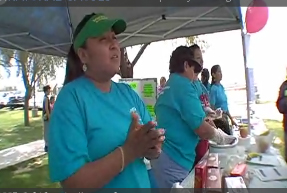 Importance of Culturally Appropriate Care for Native Americans Importance of Culturally Appropriate Care for Native Americans 
WEB-EXCLUSIVE VIDEO, Unnatural Causes Modern medicine teaches a rigid, scientific approach to disease prevention. Yet practitioners like Dr. Donald Warne argue that to be effective, health care programs must be locally controlled and responsive to the needs and beliefs of diverse individuals and groups. For Native Americans in particular, role models and interventions must come from within the community. |
 |
 In The Treatment of Diabetes, Success Often Does Not Pay In The Treatment of Diabetes, Success Often Does Not Pay 
NEWS ARTICLE in the New York Times, January 11, 2006 The third in a series of in-depth articles about New Yorkers living with diabetes, this article explores the booming business of diabetes treatment and the profit incentive that hospitals, dialysis centers, medical device manufacturers and others have to exploit the growing epidemic. Programs to prevent diabetes from occurring have shown promise but many have closed due to lack of funding. |
 |
 Indians' Water Rights Give Hope for Better Health Indians' Water Rights Give Hope for Better Health 
NEWS ARTICLE by Randal C. Archibold, New York Times, August 31, 2008 At the Gila River Indian Community, there are hopes that planned irrigation will help combat an obesity epidemic and soaring rates of diabetes. This article discusses the water settlement and the challenges the tribe faces in translating their restored water rights into real health gains for the community. |
 |
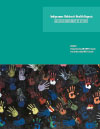 Indigenous Children's Health Report: Health Assessment in Action (pdf) Indigenous Children's Health Report: Health Assessment in Action (pdf) 
REPORT, ed. Janet Smylie and Paul Adomako This report documents what we know about the health of Indigenous children (from birth to age twelve) and evaluates the quality of Indigenous child health data collection in Canada, Australia, New Zealand, and the United States. Similar exclusionary social policies active in all four countries are at the root of these profound and unjust differences in child health.
|
 |
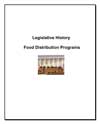 Legislative History of Food Distribution Programs (pdf) Legislative History of Food Distribution Programs (pdf) 
REPORT from the U.S. Department of Agriculture The report includes links to each federal food program. |
 |
 Liquid Gold (pdf) Liquid Gold (pdf) 
NEWS ARTICLE by Pauline Arrillaga, Associated Press, 2002 Arrillaga discusses the history and politics of the Pima's long struggle for water rights. |
 |
 Living at an Epicenter of Diabetes, Defiance and Despair Living at an Epicenter of Diabetes, Defiance and Despair 
NEWS ARTICLE in the New York Times, January 1, 2006 The second in a series of in-depth articles about New Yorkers living with diabetes, this article describes the epidemic of diabetes in low-income neighborhoods like East Harlem.
|
 |
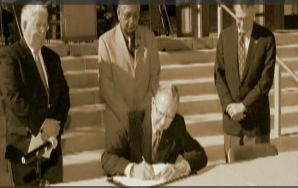 Native American Treaties and Health Care Native American Treaties and Health Care 
WEB-EXCLUSIVE VIDEO, Unnatural Causes
Dr. Donald Warne explains that Native Americans are the only U.S. group born with a legal right to health care. Historically, however, American Indian health care programs have been inadequately funded, especially compared with other federally subsidized health care. |
 |
 Obesity, diets, and social inequalities Obesity, diets, and social inequalities 
SCHOLARLY ARTICLE by Adam Drewnowski, Nutrition Reviews, April 2009 This economic analysis of obesity concludes that inequitable access to healthy foods is one mechanism by which socioeconomic factors influence the diet and health of a population. As incomes drop, energy-dense foods that are nutrient poor become the best way to provide daily calories at an affordable cost. By contrast, nutrient-rich foods and high-quality diets not only cost more but are consumed by more affluent groups. This article discusses obesity as an economic phenomenon. Obesity is the toxic consequence of economic insecurity and a failing economic environment.
|
 |
 Pima-Maricopa Irrigation Project Pima-Maricopa Irrigation Project 
WEB SITE This site includes background information and excellent educational materials on the loss of Gila River water and the history of the 2004 Water Settlement Act, as well as program information. |
 |
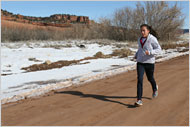 Running from Despair Running from Despair 
NEWS ARTICLE by Joe Spring, New York Times, February 16, 2008 A positive look at how some young people living on reservations are becoming involved in cross country running. Wings of America, a team of Native American athletes from around the country that has won 20 national titles since 1988, is also an NGO that works to counter the high rates of diabetes, obesity, alcoholism, and suicidal depression on reservations. |
 |
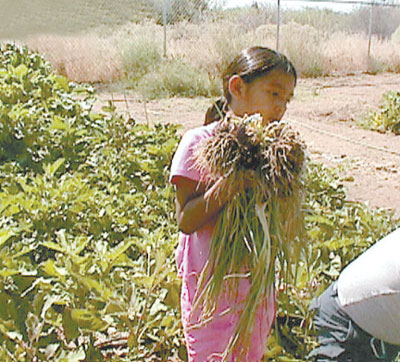 Savoring the Future - Upscale Restaurant Supports Gila River Farming Revival Savoring the Future - Upscale Restaurant Supports Gila River Farming Revival 
NEWS ARTICLE in Indian Country Today With the return of their water in a landmark settlement, the Pima Indians of southern Arizona are returning to their agricultural roots. Upscale eateries like Kai Restaurant on the edge of the Gila River Indian Community reservation are working with tribal farmers to obtain local, seasonable produce - a win-win situation for chefs and growers alike. |
 |
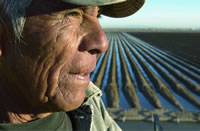 The New Water Czars The New Water Czars 
NEWS ARTICLE from the High Country News, March 15, 2004 This article describes the history and implications of the historic Arizona Water Rights Settlement Act of 2004, guaranteeing river water to the impoverished Pima and Maricopa Indian communities. |
 |
 The Pima Indians: Pathfinders for Health The Pima Indians: Pathfinders for Health 
ONLINE JOURNAL A collection of case studies and information on diabetes issues, prepared in 2002 by the National Institute of Diabetes and Digestive and Kidney Diseases, National Institute for Health. |
 |
 The Poor Get Diabetes, the Rich Get Local and Organic The Poor Get Diabetes, the Rich Get Local and Organic 
ARTICLE by Mark Winne In this excerpt from his new book, Closing the Food Gap: Resetting the Table in the Land of Plenty, Mark Winne explains a growing split in the diets of the haves and have-nots; at the same time that the wealthy are coming to prefer organic and locally-grown foods, the poor have been losing geographical and economic access to healthy options. He also reports on a survey by the non-profit group Hartford Food System, which found that low-income consumers in the area would prefer to purchase organics and fresh foods, but simply couldn't access or afford them. |
 |
 Tohono O'odham Community Action (TOCA) Tohono O'odham Community Action (TOCA) 
WEB SITE TOCA is a community- based organization dedicated to creating cultural revitalization, community health and sustainable development on the Tohono O'odham Nation. TOCA was founded in 1996 as a non-profit organization. TOCA has adopted principles that represent our approach to community development and guide our programs. |
 |
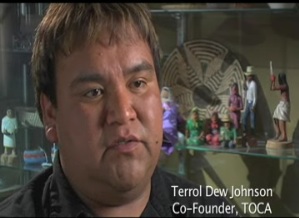 Tohono O'odham Community Action (TOCA) - Cultural Renewal to Improve Health Tohono O'odham Community Action (TOCA) - Cultural Renewal to Improve Health 
WEB-EXCLUSIVE VIDEO, Unnatural Causes Terrol Dew Johnson, featured in the "Bad Sugar" segment of UNNATURAL CAUSES, is co-founder of TOCA, a community-based organization focused on cultural renewal as key to empowerment and better health. TOCA has four primary program areas: basketweaving, traditional foods, youth/elder outreach and traditional arts and culture. |
 |
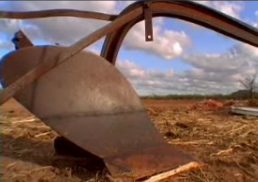 Water Rights and Diabetes in Arizona Water Rights and Diabetes in Arizona 
VIDEO EXCERPT, Unnatural Causes - Episode 4 The Tohono O'odham and Pima Indians of southern Arizona have perhaps the highest rate of diabetes in the world. Yet the disease was virtually unknown here 100 years ago. Over the last century, the diversion of river water to upstream white settlements cost the O'odham their crops, livelihood, traditional diet, culture and health. Today, community advocates hope that restoring water and renewing culture can help improve health. |
 |
| « Prev 1 | 2 |
|




